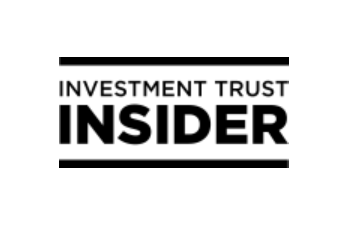Something a bit unusual – an article that we wrote that didn’t actually get published – reproduced here in full
Conferences, conventions and sporting events are being cancelled left, right and centre but investment company directors shrugged that off and flocked to a well-attended annual AIC conference on Wednesday 4th. As always, there were some interesting and thought-provoking presentations.
The possibility of a post-Brexit world free of the restraints of the prospectus directive, which cropped up in the AIC chief executive, Ian Sayers’s speech, was one that appealed to me. While they’re probably useful for an IPO, existing investment companies waste vast sums creating prospectuses that hardly anyone reads and certainly not in any great detail. It could be much easier and cheaper to grow funds in future.
It sounds as though that we are going to see much more disclosure around ESG issues as the UK government encourages the adoption of the recommendations of the Task Force on Climate Related Financial Disclosure (TCFD). That is perhaps a good thing as long as the approach does not become a formulaic, box-ticking one. We could easily end up with another section in the accounts to skip over as you try to find out what is really going on.
There was quite a bit of discussion around fund structures. You’ll know that I think that illiquid assets should never form a meaningful part of any open-ended fund. This seems to be a commonly held view. It is hard to work out why our regulator doesn’t agree with us.
We also had presentations on effective marketing – using the experience of F&C’s 150th anniversary marketing campaign as an example. One of the elements I liked about that was an emphasis on educating investors.
This is also something the AIC has been doing with IFAs. Depressingly, far too many IFAs still don’t consider using investment companies in client’s portfolios. Many outsource investment decisions to discretionary fund managers. The model portfolios that these investors create often have stringent liquidity criteria that exclude all but the largest investment companies.
This is also a factor that the sector needs to take into account as large wealth managers, many of which have traditionally been supporters of the sector, merge. The trend is to marshall investors into the grey goo of ETFs and big, bland open-ended funds. When combined with the fees that IFAs and wealth managers charge, it is maybe unsurprising that many investors are choosing to go down the route of DIY investing.
The sector was in rude health ahead of the covid-19 outbreak. The increasing importance of private investors on share registers is one reason for this. However, discounts have widened out a bit over the past six weeks and fundraising appears to be much harder, with a number of IPOs delayed.
I wrote about buybacks a few weeks ago and reminded you that most investment companies have the option to suspend buybacks when market conditions are abnormal. For the moment, the companies that have been issuing stock still seem to be popular and I can’t spot an example of this in the sector.
I also had a quick scan through the ratings and didn’t see anything that looked to be unmissable value, yet. Like many other investors, I am sitting on my hands for now.
I am pleased to say that my portfolio is proving to be pretty defensive, unsurprising perhaps as I have big positions in funds such as Capital Gearing, Personal Assets and RIT Capital, plus a fair bit of cash and Troy’s Trojan Fund. When I think the time is right, the plan is to up the risk profile a little. I think that will translate into spending the cash rather than selling down the funds, however. While the funds have been lagging equity indices for a while, now they should be coming into their own. The really big question they will be asking themselves is when to adopt a less defensive stance.
RIT Capital published its annual results on 3 March. The accounts are always an interesting read, not least because its monthly factsheets aren’t hugely informative. I have some sympathy with managers that want to emphasise the long-term and avoid commenting on short-term gyrations in markets but, in times like these, it would be useful to know a bit more about the thinking behind portfolio positioning. The real differentiator for this trust is its exposure to a wide range of third-party funds, including hedge funds, debt funds and private equity. Most of these don’t provide public information about their portfolios. It is a lot easier to get my head around what the other three defensive funds I hold are up to. That is reflected in the relative position sizes.
I am looking at another sea of red as I write this. Share prices are plunging once again as the analgesic effects of a Fed rate cut wear off and the focus returns to the pace of the spread of the coronavirus. Helpfully, Orbimed (managers of Biotech Growth and Worldwide Healthcare) have just published some thoughts on the situation. Their key messages are that there is probably a significant underdiagnosis of infection and so the mortality rate is probably overstated. They are optimistic that warm weather will help curtail the spread of the virus. The message is a comforting one but it doesn’t feel to me as though we have seen the worst in markets, that may come if the virus spreads uncontrollably in the US.
